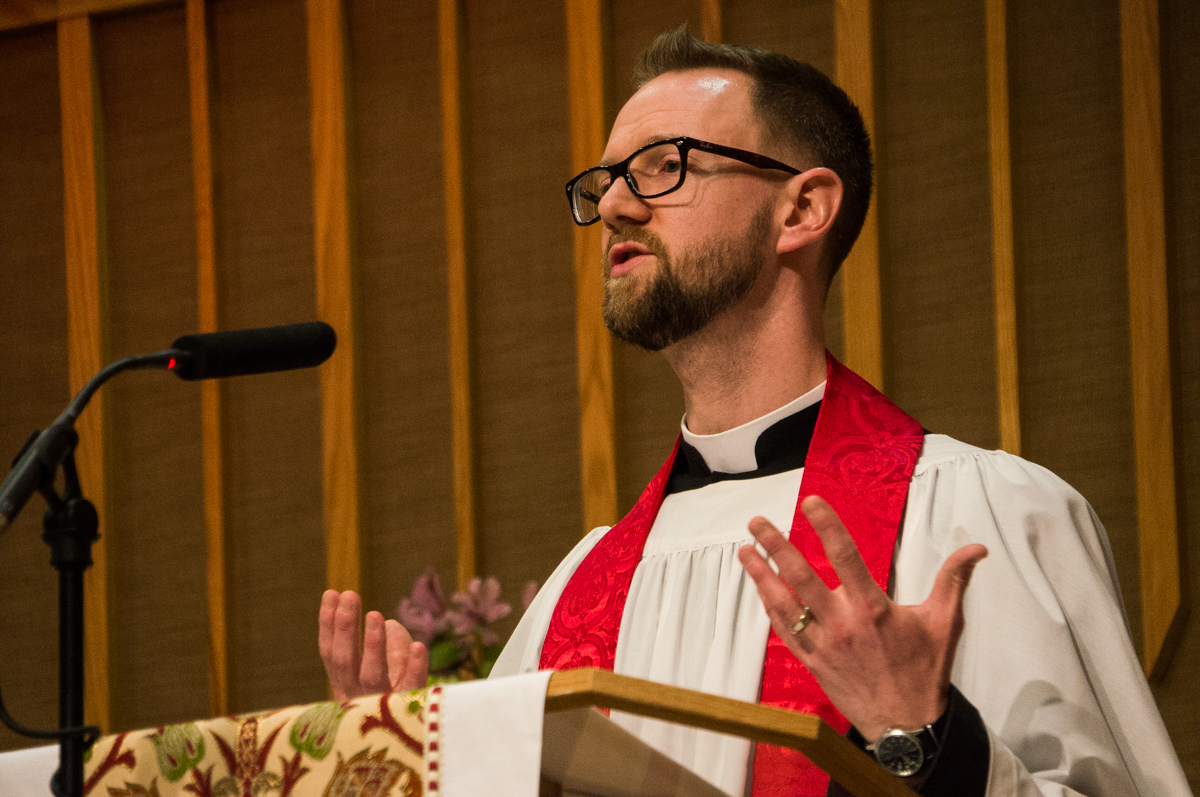Why I had to cross the Tiber
Andrew Petiprin
For years, I had felt drawn towards full communion with Rome. But making the leap wasn’t simple – for a start, I was an Episcopal priest
On the morning of January 1, 2019, my family and I began a new life in the Catholic Church. At Mass for the Solemnity of Mary, Mother of God, my wife and two children and I were received, confirmed and made our first Communion together at St Patrick’s Church in Nashville, Tennessee. Until the day before, I had been an Episcopal priest and a diocesan official.
I was raised Evangelical and passed through an agnostic phase before I was confirmed in the Church of England in 2002 while a graduate student at Oxford. My wife and children were all baptised in the Anglican Communion. For a long time, we thought we knew where we belonged; but when Mass finished on January 1, a crowd of parishioners surrounded us, shook our hands, gave my son and daughter children’s missals and rosaries, took our pictures, and repeated the phrase, “Welcome home.” On social media those same words came our way thousands more times, from all corners of the earth.
For years I had been a statistical outlier in the Episcopal Church: conservative on the theological and moral questions of the day, and especially same-sex marriage. Nonetheless, I enjoyed increased influence, compensation and status. My family loved the parishes we were a part of. No one was forcing us out, and it made a lot of sense to stay put. Breakaway Anglicanism never made much sense to me, and the Catholic Church’s clerical sex abuse scandals troubled me.
Instead, I tried to fight for the Catholic faith within Anglicanism. But I was haunted by the questions of what Anglicanism was, what my Evangelical and agnostic past had been for, and what raising my children outside of the Catholic Church meant.
Blessed John Henry Newman reports in his spiritual autobiography, Apologia Pro Vita Sua, that he heard the call from the Lord years before his conversion, but like the prophet Samuel, he lay down again a few more times before verifying it.
For my part, this initial call came to me when I watched the funeral of Pope St John Paul II in 2005. I tacitly knew then that the whole deposit of faith was true, and that the Catholic Church was where it was found. It would take me more than 13 years to cultivate a deep devotion to John Paul and to realise, like Newman, that I had a lot of the external markings of belonging without being fully in the Church. But if my family and I finally obeyed the call, how would we live without the paychecks and a generous pension from the ecclesial community I had vowed to serve? What if I was just embarrassing myself as an ecclesiastical dilettante?
In July 2018, I was in Austin, Texas, for the General Convention of the Episcopal Church. This triennial event consists of a few hundred people with the leisure to spend two weeks away from home discussing and voting on everything from divestment from Israeli companies to liturgical modernisation. There was much to distress me; and yet I had no desire to fight any more. Not in this context anyway.
I was unexpectedly overwhelmed instead by a peaceful desire to come as quickly as possible into full communion with Rome, not simply to be rid of Anglicanism. At the same time, I was finishing up my first book, an ecumenical primer of basic Christian doctrines. I was writing about Truth, and was suddenly sure of what I had felt watching the funeral Mass from the Vatican years earlier. “Here I am, Lord,” I thought.
Eventually I woke up knowing that if I believed the faith that Newman, John Paul II, and so many saints believed and made sacrifices for was true, then choosing to stay out of it was perilous to my soul. I was living in a small world, and a very large one beckoned. One of my new Catholic friends, a priest, told me in stark but invigorating terms: “The Catholic Church is perfectly awful. But it’s the real deal.” It was a wholehearted welcome with no sugarcoating. Here was the holy danger GK Chesterton commended as “the thrilling romance of orthodoxy”.
I understood that the Church needed me, and that I needed her and her members even more. My pride and material concerns began to fall away. The Lord, Our Lady, all the saints in heaven, and a large contingent of the faithful on earth were waving us in.
More than 15 difficult years after his eventual conversion, Newman declared: “It was like coming into port after a rough sea; and my happiness on that score remains to this day without interruption.” When my family and I were told at Mass for the Solemnity of Mary, Mother of God, that the Church welcomed us, we knew it was true. The Church in our day, like every age, is full of problems. Our lives as Catholics may not be easy; but we also know that the truth of Christ has brought us into port.
We are home.
Andrew Petiprin is the author of Truth Matters: Knowing God and Yourself (New Growth Press). He and his family live in Nashville, Tennessee

No comments:
Post a Comment